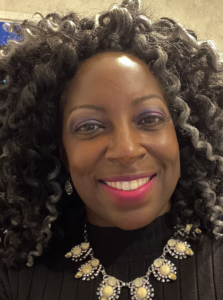 Mental health has always been an important issue to me. But now, after experiences with my daughter that I detailed in the Washington Post, and experiences in my own community, I see more clearly how critical school-based mental health resources are.
Mental health has always been an important issue to me. But now, after experiences with my daughter that I detailed in the Washington Post, and experiences in my own community, I see more clearly how critical school-based mental health resources are.
Mental health plays a crucial role in how students show up to school, and show up in life. It encompasses emotional, psychological, and social well-being. Mental health influences cognition, perception, and behavior. It also determines how an individual handles stress, interpersonal relationships, and decision-making.
Even adults can have a hard time addressing their mental health needs, so one can imagine that it might be even harder for our children to do so, particularly in schools that lack the adequate staffing or resources to support them.
Children may know something is wrong, may notice they are feeling different, but oftentimes cannot figure out how to say it, describe it, or understand what is happening. Because of this challenge, mental health struggles may show up as poor behavior choices at home and at school. A student may become withdrawn, grades may slip, outbursts may become the norm. These behaviors can lead to in-school consequences like detention, suspension, or being labeled as a “bad student”. These consequences do nothing to address underlying mental health needs, and only lead to increased time away from the classroom and subsequent learning-loss.
None of us think we have “bad” children, because we do not. The reality is that our children may be making poor choices because of mental health needs that are being overlooked or ignored. If no one takes the time to understand the root causes behind behaviors, we miss opportunities to resolve the bigger issue.
PAVE parent advocacy on school-based mental health supports is vital because it gives voice and agency to DC students and families. Our students deserve a world-class education; an equitable one that holistically meets their diverse academic and mental health needs. It is important that we hold legislators and policy-makers accountable for providing access to mental health supports in our schools. We cannot expect our students to excel academically when we have not met their mental health needs first. This is why School-Based Mental Health has been one of our PAVE #ParentPriorities for 5 years in a row!
My work as a Ward 6 Citywide PLE Board member has empowered me to collaborate with community partners and policymakers on decisions that impact our children’s mental health. I know first-hand that when we harness the power within us by sharing our stories around school-based mental health, elected officials and policy-makers will hear us and make the needed systemic changes to create an environment that best meets our students’ mental health needs.
Our children’s healthy development depends on US, their parents—and other caregivers who act in the role of parents—to serve as their first sources of support in becoming independent and leading healthy and successful lives. It’s important that we talk about mental health at the dinner table, or in the family group chat. How we talk about it impacts how our children view mental health and communicate.
I want the DC Council to continue to provide adequate funding for school-based behavioral health services, specifically for Black and Brown students across the district. I want integrated comprehensive services and support throughout every grade level. Further, I hope that mental health needs are assessed through universal, selective, and targeted interventions.
To get us close to my desired outcome, each school must have a full-time psychiatrist and therapist available on-site all school year. Additionally, I want the stigma and embarrassment of mental health to be eliminated through positive messaging. I wholeheartedly believe that PAVE parent leader advocacy will transform how students and families view mental health challenges and seek resources to address them.
It may be a challenge for children to understand or name their mental health needs. It’s up to US (parent leaders) to AMPLIFY our voices and ensure that students in the district have access to the services they deserve.
By Kisha Clark, Citywide PLE and Ward 6 PLE Board member

